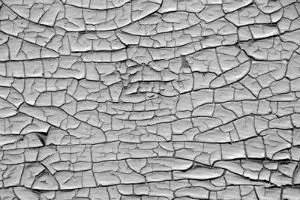Paint Quality Reflects Home Maintenance: A Technical Guide
In South Florida’s luxury market, paint isn’t just aesthetic—it’s a surface signal of how well a home is cared for. For $1 million+ buyers, even the slightest flaw—a roller mark, a paint bubble, a hairline crack—can imply bigger problems. And often, they're not wrong.
If the walls are neglected, what about the things they hide?
Here’s how premium-level paint work is done right—and how Gleam Force ensures your home speaks the language of quality, down to the last coat.
What Makes a High-Quality Finish?
It starts long before the first drop of paint hits the wall. A smooth, lasting paint job is the result of proper prep, professional application techniques, and product knowledge.
🛠️ Surface Preparation Includes:
Drywall patching & sanding: All holes, dents, or nail pops must be filled and feather-sanded flat.
Caulking: Cracks along trim and corners are sealed to prevent future separation.
Cleaning: Especially in kitchens, bathrooms, or homes near the coast—walls must be free of oils, dust, and salt residue.
Priming: Applied after patching and before color. Especially critical on porous surfaces (raw drywall or plaster) and in high-humidity environments.
Rule of thumb: If you feel a rough patch, you’ll see it in the finish.
🎨 Types of Paint Finishes & Where They Work Best
Each finish offers a distinct look and level of durability. Here’s how to choose the right one for each space:
Different types of paint finishes.
Flat / Matte
Best for: Ceilings, low-traffic areas
Why: Soft, elegant, and great at hiding imperfections
Watch out: Hard to clean—avoid in high-touch spaces
Eggshell
Best for: Living rooms, bedrooms
Why: Subtle sheen, lightly washable
Ideal for: Smooth walls where you want a touch of polish
Satin
Best for: Kitchens, bathrooms, trim, kids' rooms
Why: Durable and moisture-resistant
Bonus: Balances elegance with practicality
Semi-Gloss
Best for: Doors, baseboards, cabinetry
Why: Tough and easy to clean
Tip: Reveals surface flaws—needs proper prep
High-Gloss
Best for: Furniture, accents, modern contrast points
Why: Ultra-reflective and dramatic
Caution: Requires near-perfect surface prep
Gleam Force typically uses eggshell or satin for main living spaces in South Florida—offering elegant light reflection and long-term durability without the maintenance hassle of flat finishes.
Paint Products: Not All Brands Are Equal
At Gleam Force, we primarily work with:
Benjamin Moore Regal Select / Aura – Exceptional flow and leveling, low VOC, fade-resistant.
Sherwin-Williams Emerald / Duration – High-performance options with mold/mildew resistance.
Fine Paints of Europe (for high-gloss and designer projects) – Ultra-smooth lacquer-like finishes.
The key is selecting the right base + finish + application tool for each surface.
How We Achieve Smooth, Even Walls
🎨 Application Techniques That Matter:
Brush vs. roller vs. sprayer: We select based on room size, surface texture, and finish sheen.
Spray-backroll: In some cases, we spray for even application then roll for texture consistency.
Feathered rolling technique: Prevents lap marks and visible roller lines, especially on large walls.
Tipping doors and trim: A high-end method of laying off brushed paint for a smooth surface.
⚙️ Tools of the Trade:
Purdy & Wooster brushes and rollers: Industry standard for consistency and finish control.
High-grade sprayers (Graco, Titan): For cabinetry or large wall areas with ultra-smooth results.
Sanding sponges & poles: Used between coats for glass-smooth feel, especially on satin finishes.
Paint Failures: What to Avoid (and What They Signal)
Poor-quality paint jobs often reveal themselves within 6–12 months:
Flashing: Uneven sheen from inconsistent application or poor priming.
Peeling: Usually from painting over dust, moisture, or unsealed surfaces.
Bubbling: Caused by heat, moisture, or painting over damp substrate.
Alligatoring: Cracking paint due to incompatible layers or low-quality base coats.
Luxury buyers notice these things. They associate visible flaws with hidden problems—even when none exist.
At Gleam Force, Precision Is the Standard
We treat every surface like a first impression. Whether it’s Venetian plaster in a powder room, or eggshell walls in a minimalist master suite, our process is structured to meet luxury expectations—visually and technically.
Don’t let poor execution cost you high-end buyers.
Contact Gleam Force for precision painting that lasts—and leaves nothing to doubt.










